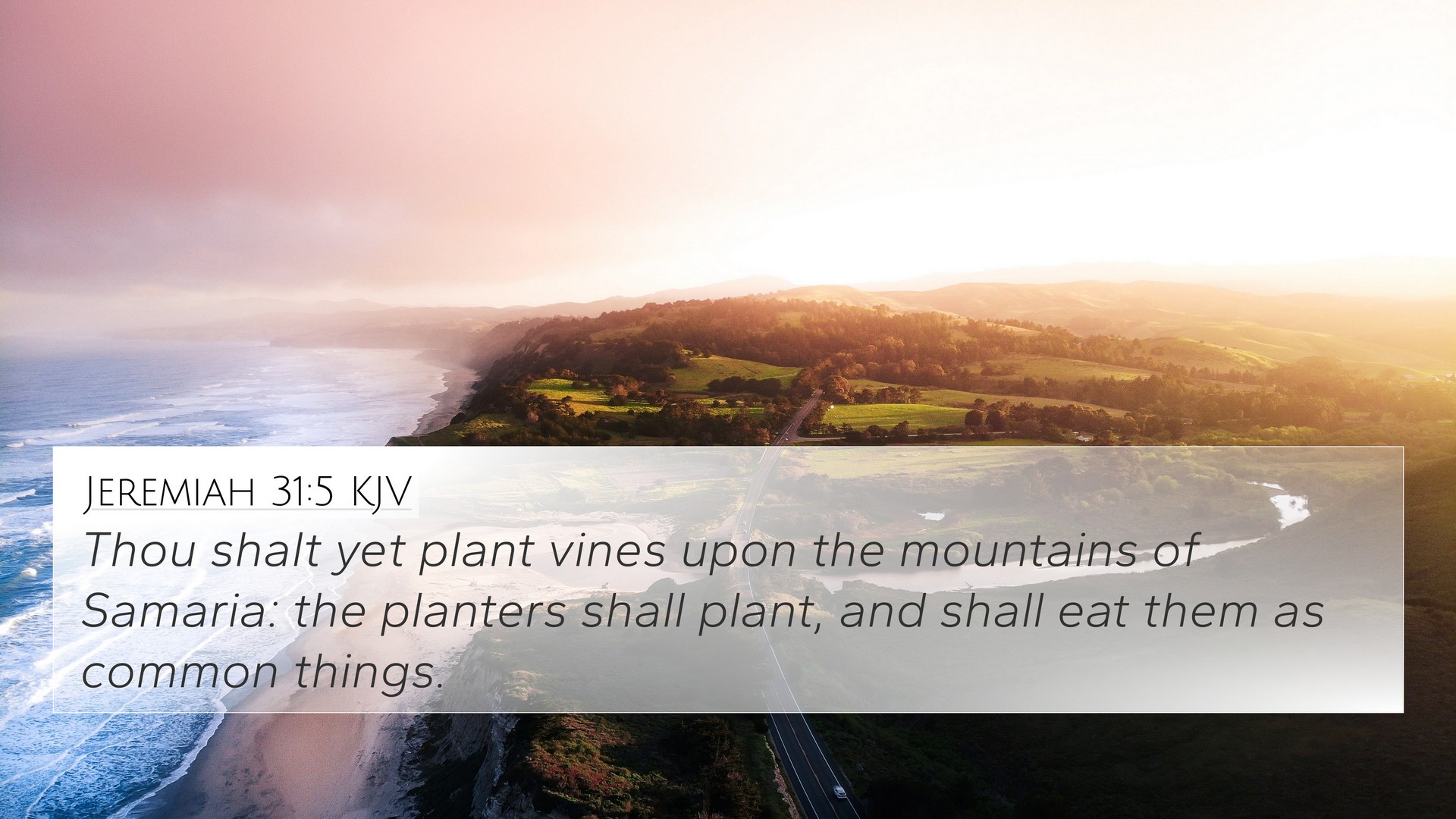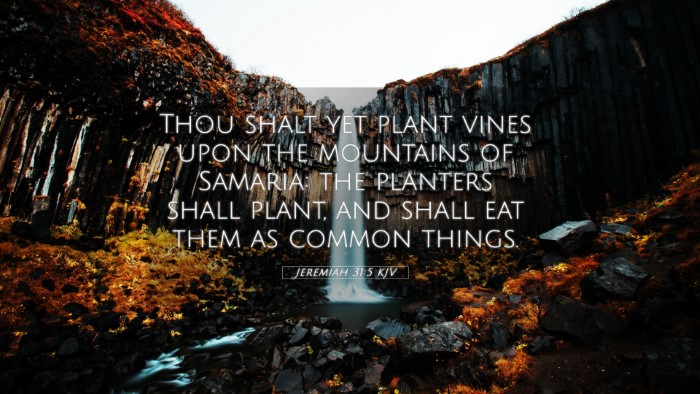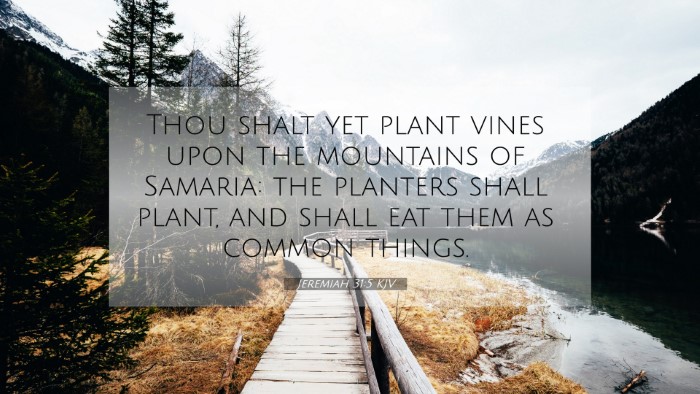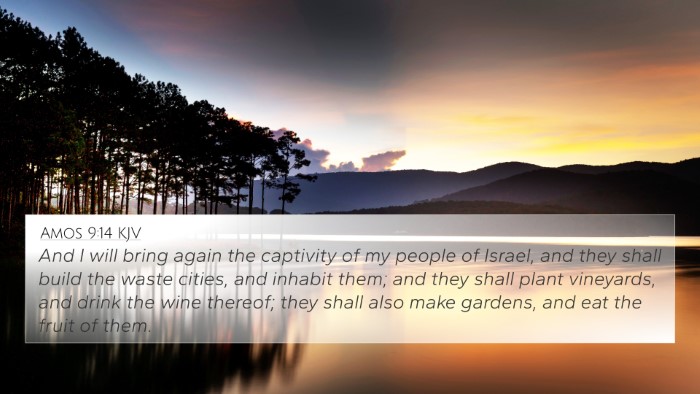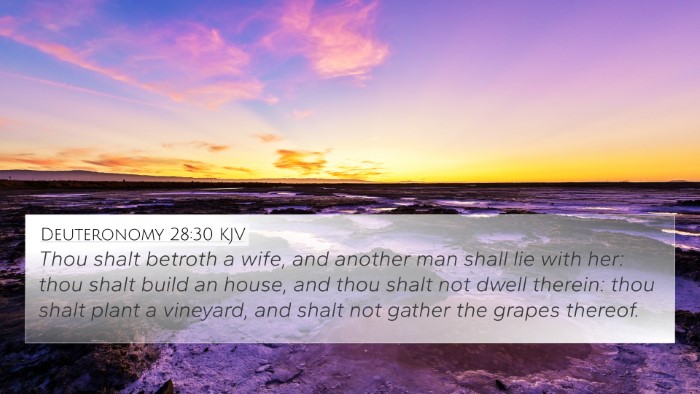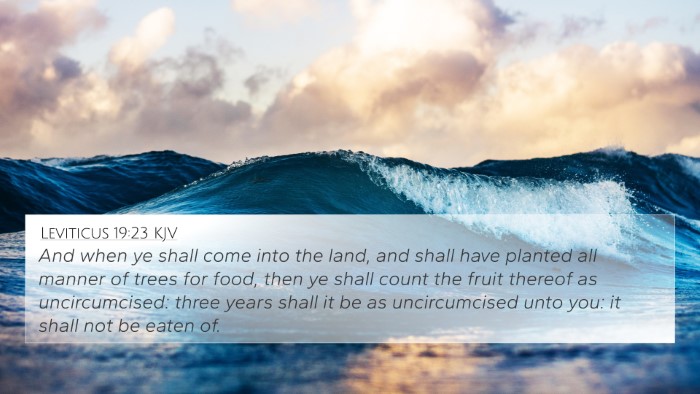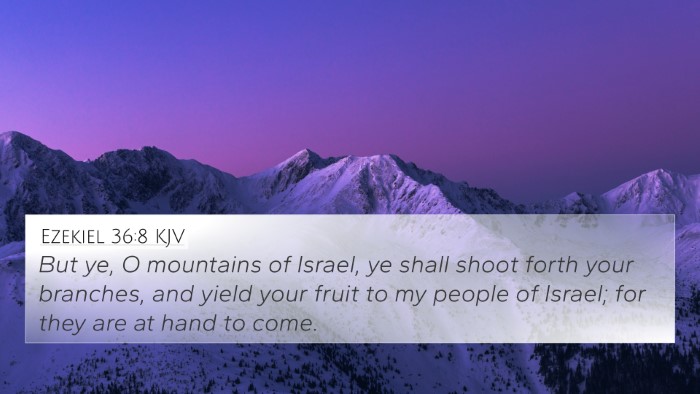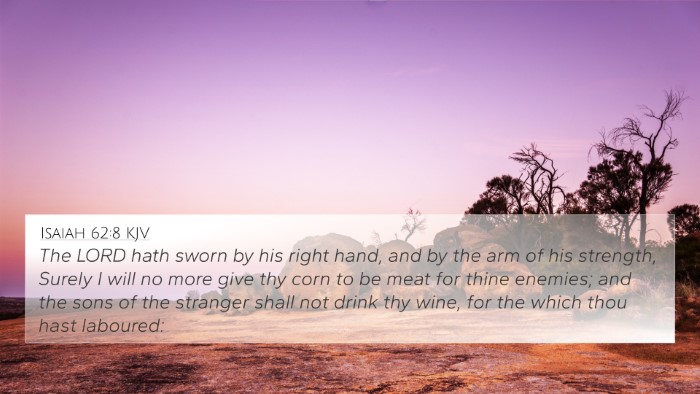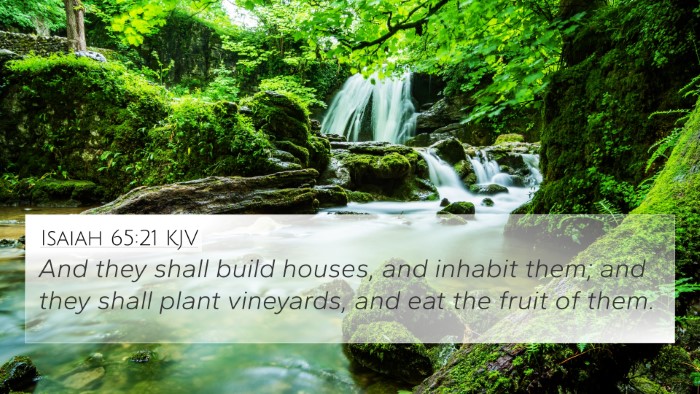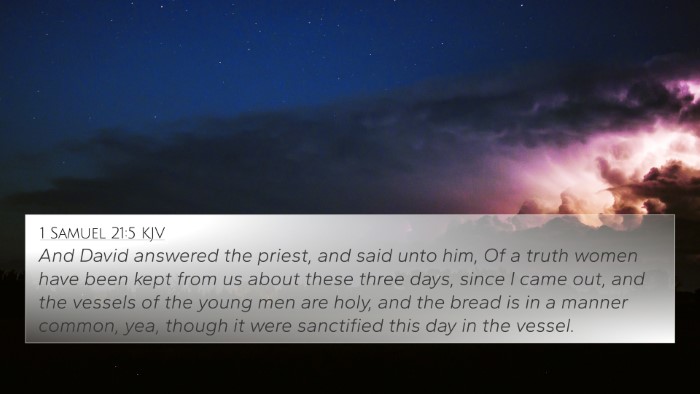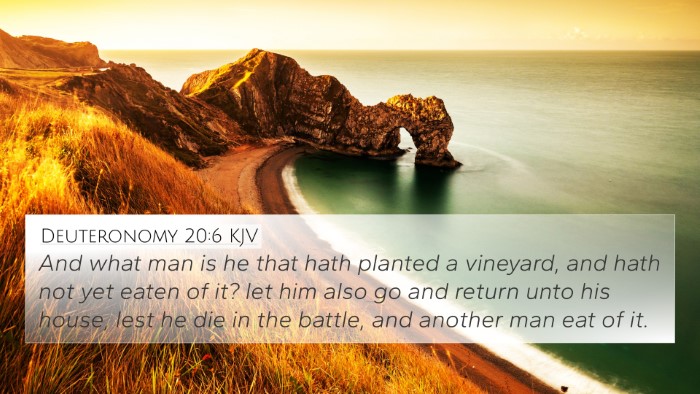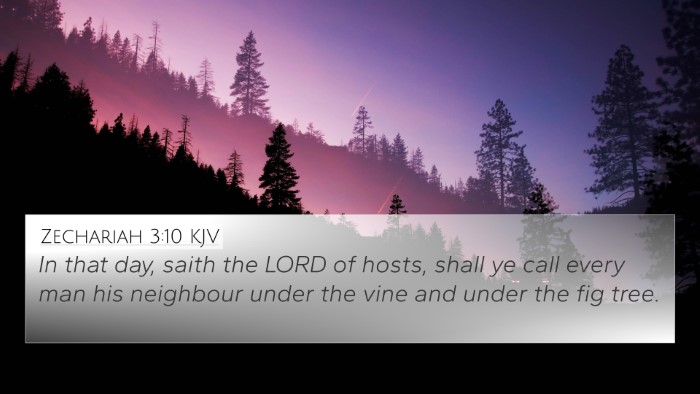Understanding Jeremiah 31:5
Verse: "Again you shall plant vineyards on the mountains of Samaria; The planters shall plant and eat them as ordinary food." (Jeremiah 31:5)
Summary of Meaning
Jeremiah 31:5 conveys a message of hope and restoration for the people of Israel. After a period of exile and desolation, God promises a return of prosperity and normalcy, symbolized by the planting of vineyards. This verse signifies the restoration of the land and the joy of reaping the fruits of labor, emphasizing that God will bless His people in the future.
Commentary Insights
Matthew Henry
Matthew Henry emphasizes that this verse highlights God's promise of rejuvenation for the Israelites after their suffering. He notes that the planting of vineyards indicates both physical prosperity and spiritual renewal. Henry insightfully connects this promise to God’s unwavering faithfulness to His covenant with Israel, assuring the people that their efforts will not be in vain.
Albert Barnes
Albert Barnes elaborates on the metaphor of vineyards, interpreting it as a symbol of joy and abundance. He points out that in the agricultural context of Israel, vineyards would have been seen as a source of sustenance and celebration. Barnes draws attention to how this restoration is not simply about physical abundance but also reflects a deeper spiritual rebirth for the nation of Israel.
Adam Clarke
Adam Clarke's commentary suggests that the reference to planting vineyards indicates a return to normal life and societal stability. He explains that this verse contrasts the previous desolation Israel faced and underlines the idea that God's promises include tangible blessings. Clarke also highlights the communal aspect of this promise, where the entire society is rejuvenated together.
Cross-References Related to Jeremiah 31:5
- Isaiah 65:21-22 - A promise of building houses and planting vineyards.
- Joel 2:24-26 - Restoration of crops and abundant harvests for the people.
- Amos 9:14 - The promise of restoration and planting gardens.
- Zechariah 8:12 - Assurance of prosperity and fruitfulness in the land.
- Psalm 126:5-6 - Those who sow in tears shall reap with joy.
- John 15:5 - Jesus as the true vine, reinforcing themes of growth and sustenance.
- Matthew 9:37-38 - The harvest is plentiful, symbolizing spiritual fruits.
- Galatians 6:9 - Encouragement to not grow weary in doing good, for in due season we will reap.
- Revelation 21:1-2 - A vision of a new creation, linking to restoration themes.
- Romans 8:18-19 - The creation eagerly awaiting its restoration, echoing the longings expressed in Jeremiah.
Thematic Connections
Jeremiah 31:5 serves as an important reflection of God's overarching theme of restoration and redemption throughout the Bible. The connections between various Bible verses provide a deeper understanding of God's plans for His people:
- Restoration of Israel: Promises in both the Old and New Testaments often emphasize restoration (Isaiah, Joel).
- Abundance and Joy: The motifs of rejoicing in God’s blessings resonate throughout Biblical texts (Psalm 126).
- Divine Presence: Many verses connect God's promises with His presence among His people (Matthew 28:20).
- Covenantal Faithfulness: The enduring nature of God’s covenants shows through His commitments to His people (Romans 11:29).
Conclusion
Understanding Jeremiah 31:5 requires recognizing the depth of God's promises to His people. The restoration of vineyards symbolizes not just physical sustenance but also spiritual renewal and community harmony. Through comparative Bible verse analysis and thematic links, we can appreciate the interconnectedness of scripture, revealing a coherent message of hope, restoration, and divine faithfulness.
